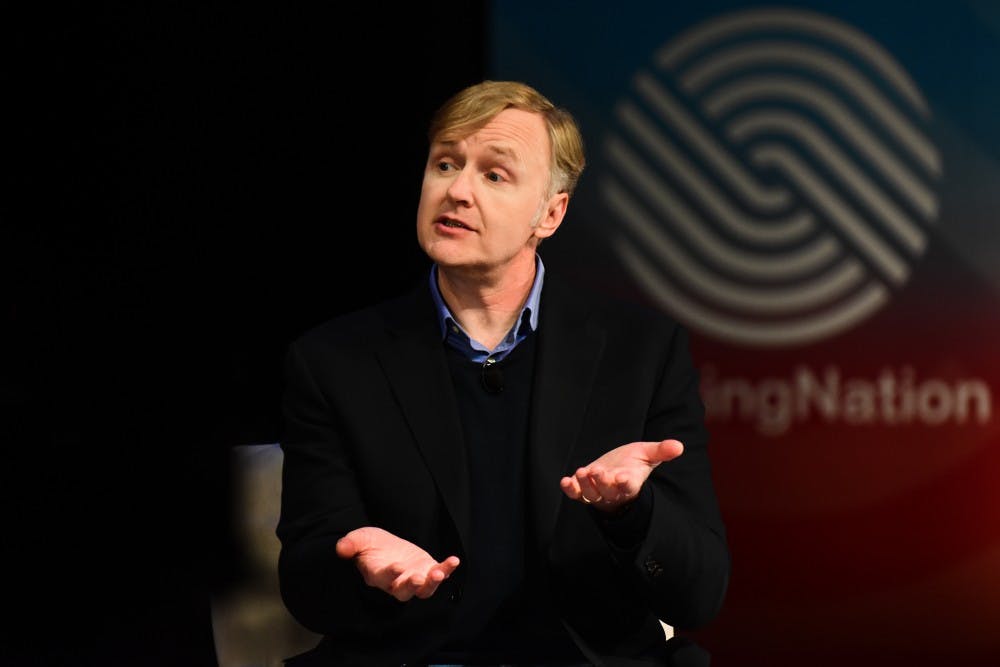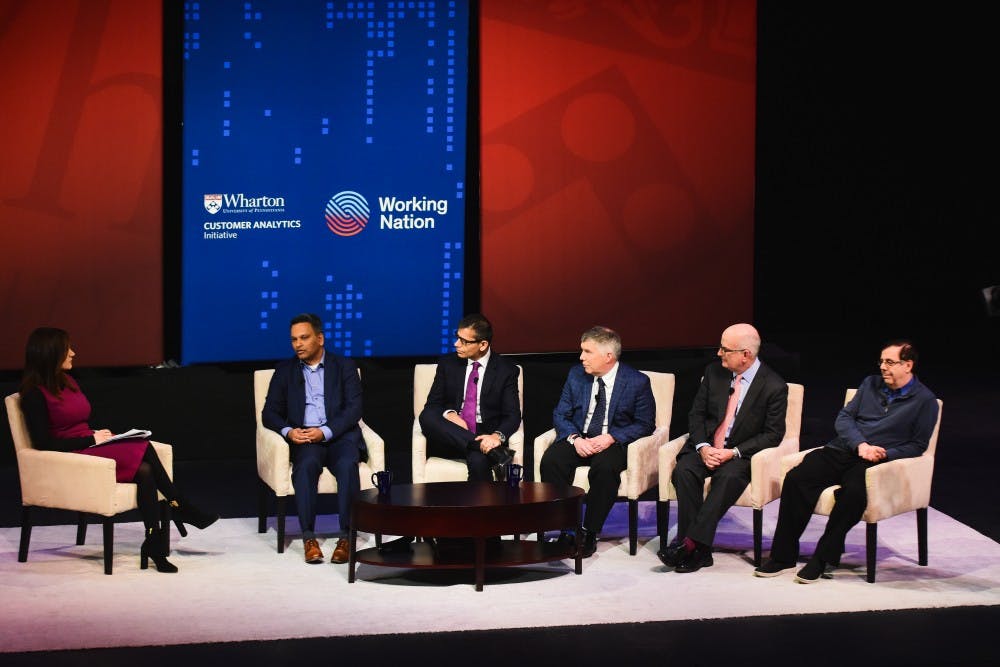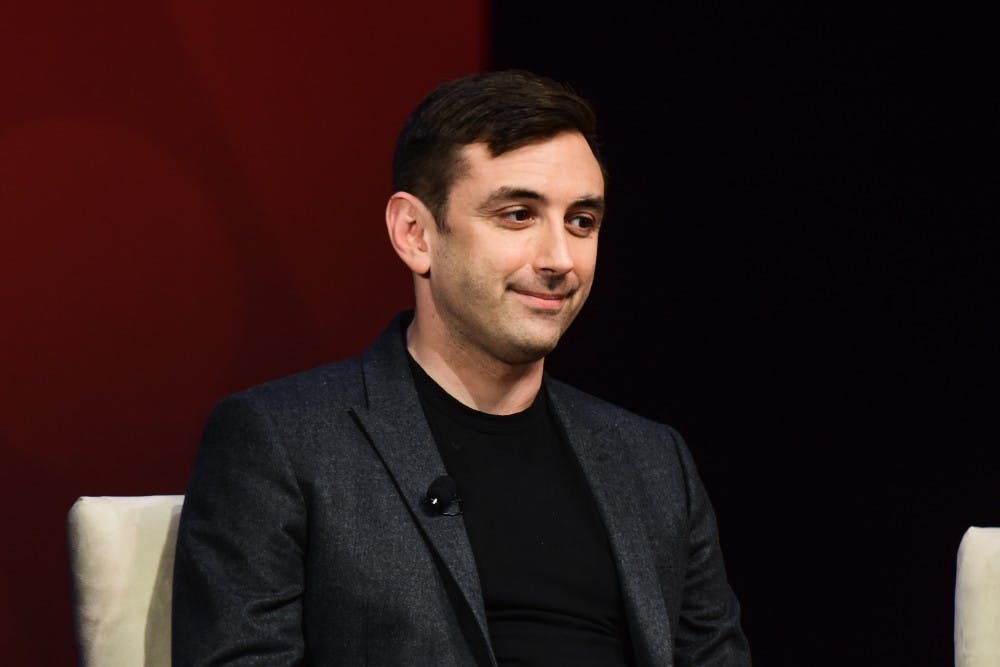
Allen Blue, the co-founder of LinkedIn, delivered the keynote address at the event titled "The Future is Now: Closing the Data Analytics Skills Gap."
Credit: Ananya ChandraStudents should consider pursuing the growing field of data analytics, prominent business and education leaders said at a panel hosted by the Wharton School on Tuesday night.
During the event, titled “The Future is Now: Closing the Data Analytics Skills Gap,” panelists emphasized that data analytics is increasingly important in fields ranging from health care to business and nonprofit work. Companies use data analytics to gain unprecedented access to information, which allows them to track consumer behavior and expand in new directions.
The event was co-hosted by Wharton, the Wharton Customer Analytics Initiative, and WorkingNation, a nonprofit campaign that helps prepare Americans for the changing economy. Speakers included LinkedIn co-founder Allen Blue, Morgan Stanley Chief Technology Officer Tsvi Gal, and Comcast Senior Vice President of Marketing Strategy and Planning Ravi Kandikonda.
In his keynote address, Blue said LinkedIn data scientists tracked the job search process of employees who lost jobs in the recession to map the changing skill gaps and opportunities in the economy in 2009. Afterwards, a panel of industry leaders discussed the role of data analytics in the substantial expansion of their fields.
Gates Foundation Deputy Director of Quantitative Sciences Steven Kern said scientists at the foundation analyzed global genomics data in an attempt to locate common factors contributing to stunted growth in various countries.
“If you don’t know data science today, it’s a cement ceiling,” Marketing chairperson and 1988 Wharton graduate Eric Bradlow said in a second panel that discussed education. Bradlow is also a faculty co-director of the Wharton Customer Analytics Initiative.

Penn Medicine Executive Vice President and Chief Administrative Officer Kevin Mahoney also explained how health care providers have used data collected through smart devices, such as Fitbit watches, to determine optimal times to treat patients.
“This is going to reduce costs and improve the human condition,” Mahoney said.
While panelists touched on how the data analytics boom has advanced the economy, they also explored the implications for those left out.
Wharton Dean Geoffrey Garrett spoke at the event and pointed to a “tension between the opportunities and dislocations” related to the data analytics boom. Other speakers added that, particularly in the finance sector, jobs involving data science are only open to people with college degrees.
In the second panel, speakers also discussed how to better incorporate data analytics in education. 2008 Wharton MBA graduate Jake Schwartz discussed co-founding General Assembly, an educational institution with campuses around the world that teaches technology skills to business professionals.
Schwartz, along with Community College of Philadelphia President Donald Guy Generals, said modular education and micro-credential programs allow students to learn practical skills in small pieces rather than pursuing an entire college degree. This trend allows more non-traditional students to enter data analytics related fields.
“The opportunities are really there when you embrace the idea that it’s about [your skills] and not the quality of paper your degree is written on,” Schwartz said.

Philadelphia School District Chief Information Officer Melanie Harris also said the district is incorporating data science in their curriculum by teaching concepts like patterns, coding, and research ethics as early as elementary school.
“It doesn’t matter what you’re doing," Blue said. "For you to be able to do your job well in the future, not only do you need to understand these technologies, but you need to learn new technologies as they come on board."
The Daily Pennsylvanian is an independent, student-run newspaper. Please consider making a donation to support the coverage that shapes the University. Your generosity ensures a future of strong journalism at Penn.
Donate







